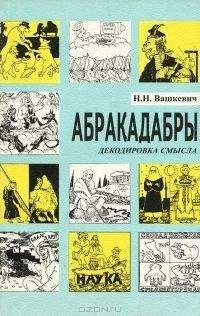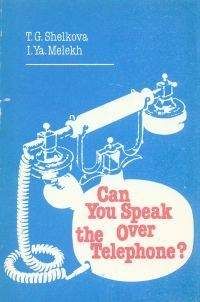Т. Шелкова - Как вести беседу по телефону
Sims: We only want one thing more — evidence of how the poison came into her possession. That oughtn’t to be difficult.
Poirot: But so far you haven’t been successful?
Sims: I’ve barely started. The inquest was only this morning.
Poirot: What happened at it?
Sims: Adjourned for a week.
Poirot: And the young lady — Katrina?
Sims: I’m detaining her on suspicion. Don’t want to run any risks. She might have some funny[159] friends in the country who’d try to get her out of it.
Poirot: No, I don’t think she has any friends.
Sims: Really? What makes you say that, Mr Poirot?
Poirot: It’s just an idea of mine. There were no other “items” as you call them?
Sims: Nothing that’s strictly relevant. Miss B. seems to have been monkeying a bit with her shares lately — must have dropped quite a tidy sum. It’s rather a funny business, one way and another, but I don’t see how it affects the main issue — not at present that is.
Poirot: No, perhaps you are right. Well, my best thanks to you. It was most amiable of you to ring me up.
Sims: Not at all. I’m a man of my word. I could see you were interested. Who knows you may be able to give me a helping hand before the end.
Poirot: That would give me a great pleasure. It might help you, for instance, if I could lay my hand on a friend of the girl Katrina.
Sims: I thought you said she hadn’t any friends?
Poirot: I was wrong. She has one. (Before the Inspector could ask a further question, Poirot had rung off.)
13. Amateur Doctors Have a Cold Day (to be taken with “Miscellanea” and converted into dialogues)
Washington. — Because medical costs are rising so fast, more and more people are diagnosing their own illnesses or, worse still, those of their friends. The government would do well to make a study of how these nonprofessional diagnoses are affecting the nation’s health picture.
The other day I had a cold. It was just like the ones you see on television. I was sneezing, coughing and looking mournfully at my wife. I called my secretary at the office and said I wouldn’t be in because I felt lousy.
“You must have one of those “eight-hour things” that’s going all around town,” she said. “You’ll feel perfectly well tomorrow.”
Eight hours seemed to be a reasonable time to have a cold, and I was looking forward to staying in bed, particularly since the Yankees and Red Sox were playing a crucial game to get into the American League playoffs.
* * *
My sister called, and I told her I had one of those “eight-hour things that’s been going all around.”
“Are you sure it’s only an “eight-hour thing”?” she asked. “It could be the “24-hour bug”[160] Harold had last week. Do you have any fever?”
“A little — maybe 100.”
“That’s the “24-hour bug” for sure. Drink lots of fluids and take aspirin, and you’ll be able to shake it off.”
I really hadn’t counted on staying in bed for 24 hours, but it’s stupid to fight a bug. My other sister called up 10 minutes later. “Edith says you’ve got a 24-hour bug.”
“I don’t know if it’s a bug or just a cold.”
“Is your nose red from blowing it?”
“Yah, sure it is. Why do you ask?”
“Then you don’t have a “24-hour bug.” You have a “48-hour virus”.”
“My secretary said all I had was an “eight-hour thing.” How come you moved it up to 48 hours?”
“The “eight-hour thing” is entirely different. You feel funny but your nose doesn’t get red when you blow it. The “24-hour bug” has all the symptoms of the “eight-hour” one, except that you cough a lot. The “48-hour virus” makes you sneeze, cough and perspire while you’re sleeping. You have to stay in bed for two days.”
“But I can’t stay in bed for two days.”
“Look,” my sister said. “If you don’t want medical advice, don’t ask me.”
I think I might have been all right except that my secretary told Healy I was home with the flu.
Примечания
1
code: a system of figures used to represent telephone numbers of the cities and countries which have been changed to all-figure numbers. A London all-figure number is 01-2222870. 01 is the code to be dialed if you make a call from telephones outside the London Area. But if you make a call in London you must dial only the last seven figures those after the hyphen.
For numbers in New York City dial: 0-01 212 followed by the last 7 digits of the number of the customer you require.
2
Complimentary Ticket пригласительный билет
3
I’ll see that you are paged in the restaurant. Я попрошу, чтобы вас вызвали из ресторана.
4
hors-d’oeuvre or turtle soup, sole or omelette, beef fillet or roast duckling закуска или суп из черепахи, палтус или омлет, говяжье филе или жареная утка
5
7 for 7.30 с 7 до 7.30 (сбор гостей)
6
BEA: British European Airways Британская европейская авиатранспортная компания
7
economy class: second class
8
Heathrow: the biggest airport in London
9
West London Air Terminal: central passenger station that serves as a junction with other lines
10
what’s playing Am. что будет
11
Eugene O’Neill (1888-1953): a prominent American playwright; “Long Day’s Journey into Night” «Долгий день уходит в ночь”
12
to have other fish to fry иметь другие более важные дела
13
I’m brimming over with joy and happiness. Я преисполнен радости и счастья.
14
the Development Programme Программа развития (экономики)
15
the U.N. technical assistance техническая помощь, оказываемая ООН
16
to hit the spot Am. попасть в точку, угодить
17
free: unoccupied
18
Marsh speaking: the generally accepted formal way for a man to announce himself on the telephone is for him to use his surname only, omitting the title Mr. An alternative, perhaps slightly less formal, would be to use the Christian name as well, which is generally accepted in American English, e.g. This is James Marsh speaking.
19
a Mr Weston: the fact that the operator uses the indefinite article with the name indicates that she does not know the caller.
20
on the line: a standard phrase used by operators to refer to an incoming call
21
What can I do for you?: almost a fixed phrase, which is very often used as a polite way of asking someone what he wants
22
surveyor инспектор, приемщик
23
Splendid: an exclamation of approval which may sound to some people just a little too hearty or pompous
24
quick work: often used to refer to anything that has been done quickly, not simply a job or work; e.g. “You made quick work of that ice-cream”, where the implication is that ice-cream was eaten quickly.
25
you’ll be pleased to know: a fixed phrase which would be more appropriate in written English. It is one of the phrases which adds formality to this conversation, and would be unlikely in informal telephone conversations.
26
subsidence осадка
27
You’ve taken a load off my mind: this phrase is colloquial, and is used by someone who has had a cause for worry or anxiety removed.
28
to hold things up: to delay proceedings (задержать работу)
29
the outstanding work: work that has not yet been completed. Contrast the frequent use of “outstanding” to imply “of outstanding merit, qualities”, etc., as in “He is an outstanding man in every way”, “She has done some outstanding work at school”.
30
the plating and polishing shops плакировочный и полировочный цехи
31
then you can have a free hand: the sense is that there will be complete freedom from any hindrance: the “hands” of the workmen will be “free”.
32
That brings us to Thursday morning: note that idiomatic use of “bring” in such sentences as “That brings us to the next item to be discussed”.
33
put it in hand: give instructions to have the job started, e.g. “I’ve got the job in hand”, which means that the job is either being done, or is about to be started.
34
I’m not keeping you from anything: the meaning here is “I’m not preventing you from doing anything else (by talking to you)”.
35
I do have: note the use of “do” here, making the verb emphatic. The effect of the emphasis is softened, however, by the following clause beginning with but.
36
at your disposal: prepared to carry on the conversation. A bit of business phraseology.
37
carry on: continue. Contrast the colloquial use to mean “talk too much”, “make lengthy and tedious assertions”, as in “John is a nice chap, but he does carry on about his health”.
38
outlet duct выходная труба
39
think to inspect: more usually one would expect to find “think of inspecting”, but “think” may be followed by “to” plus the infinitive form of the verb instead of “of plus present participle, as in “I didn’t think to tell him” vs. “I didn’t think of telling him”.
40
look, Mr Weston: note this rather informal use of the imperative ‘look” as a signal that the speaker wishes to call attention to a proposition or statement he is about to make.
41
loadings нагрузка
42
Fine: an informal exclamation of approval or agreement
43
Not at all: one of the very few ways in English of replying to someone who has just said ‘Thank you”. For some people it has faintly comic overtones, and these are stronger with the comparable formula “Don’t mention it”. Normally, no reply to “Thank you” is absolutely necessary, but many people feel happier if they say something like ‘That’s all right”, “Pleased to help”, “Glad to be of assistance”, etc.
44
get things moving: an informal way of saying “order work to start”
45
what with that and this: because of that and this
46
up to my ears in it: overloaded with work
47
round fortyish: around forty years old
48
a little bit heavy-going: rather too serious or pompous
49
got his head screwed on the right way: clever, intelligent
50
on hand: available
51
a bit short-handed: short of staff/workers




